By Rev Tanaka Mashiche SJ
Lent has been always a time for self-introspection, where we are challenged to look at our relationship with God, others and creation. I usually take lent as a journey of faith – how one is supposed to form relationships with the help of prayer, alms giving and fasting. Most people these days want to make challenges from secular world, for example the dead man challenge and the youth magate challenge among others.
The Church every year gives us the Lenten Challenge, which is faith challenge, that is if we know what our is faith and understand its meaning.
In our journey as Christians, we sometimes have to stop and ponder on the simple stuff taught in catechism, or we do not grow. In my journey from catechism, faith has been something supernatural. From the Catholic Catechism number 1814, faith is defined as “the theological virtue by which we believe in God and believe all that he has said and revealed to us, and that Holy Church proposes for our belief, because he is truth itself. By faith “man freely commits his entire self to God”(78). For this reason the believer seeks to know and do God’s will. “The righteous shall live by faith.” Living faith “work[s] through charity.”
From the above definition, if faith is a supernatural gift, then there is possibly or obviously no natural way of knowing whether or not we have it; yet faith is necessary for salvation. This may seem simple and straight forward, but to some it can cause anxieties, especially those who are empiricists who believe through seeing like Thomas. How do we solve such a problem? Faith is a grace of God as the following passage from catechism number 1815 says, “The gift of faith remains in one who has not sinned against it (80 But “faith apart from works is dead” (81): when it is deprived of hope and love, faith does not fully unite the believer to Christ and does not make him a living member of his Body.” Many Catholics believe faith is primarily about belief in doctrine, but it is primarily an attitude of trust, trust in God who is present in all things, in every circumstance, every fact, and every detail of life.
Faith in this sense is not separated from the rest of life; it is faith in the sacrament of the present moment. Most people quote Hebrews 11:1, “Now faith is confidence in what we hope for and assurance about what we do not see.” Through reflection, I have discovered that faith in a sense is quite compatible with confusion, bewilderment, doubt and ignorance of many things, including sometimes the teaching of the Church. If it is about an attitude of trust in God, faith goes beyond belief in the things unseen. It is an attitude of deep confidence in life which remains unshaken by uncertainty about its details. “Unless you become as little children you cannot enter the Kingdom of God.” In order to have trust in parents, the child does not have to walk around with bulky documentation proving paternity, maternity, and the trustworthiness of both parents.
Faith becomes an attitude of the heart, not primarily of the intellect, an attitude which St Anselm expresses it as “seeking understanding”. One author further went on and said, “Where your heart is, let your brain be also.” St Ignatius of Loyola explained that the longest journey one can travel is from the head to the heart. Once we make that journey, then we find our faith. The primary object of faith is God; all the doctrine and teachings of the Church are means of helping us in that journey of faith. If doctrines become the object of our faith, then they become an obstacle to our finding God. Nothing so masks the face of God as religion if it is left to dogmatic interpretations only.
Catechism teaches that “The disciple of Christ must not only keep the faith and live on it, but also profess it, confidently bear witness to it, and spread it: All however must be prepared to confess Christ before men and to follow him along the way of the Cross, amidst the persecutions which the Church never lacks” (82). Service of and witness to the faith are necessary for salvation: “So everyone who acknowledges me before men, I also will acknowledge before my Father who is in heaven; but whoever denies me before men, I also will deny before my Father who is in heaven” (83). Life that God gave us is a sacrament that should be celebrated each and every day. It is upon each individual to recognise the burning bush in their life of faith which is the supernatural consciousness.
Faith is entrusting ourselves to the mystery in which we are living, trusting that love is at the heart of it. So it is safe to explore, and unsafe to rest in what we consider our present certainties. It is when we explore during lent we find who God is really is and challenged by our faith. Faith does not end up being like drama of Pentecostalism of rising the dead like Pastor Lakau did, or holding a snake pretending it will not bite you. Faith becomes an action of union with what God desires it to be. Those who rest in unshakeable certainties no longer live in faith, although they pride themselves on being the only people who have true faith. Faith brings certainty which enables us to move with sureness in all the uncertainty, confusion, disappointment and delusion of life. With faith in God we see everything as provisional, and we are always open to new possibilities.
Personally, I believe that the supernatural matters above all, keeping in the right relationship with God, giving him worship and praise and prayer, and receiving God’s grace through sacraments. Karl Rahner points out that there is nothing in existence which is not supernatural. All creation is called into unity with God, and God is constantly drawing all things into that unity. As earlier alluded, everything is sacramental, every bush is burning. If only we have eye to see, then our faith can grow. In every conscious act we make, we are either saying yes or no to God. It is the journey of lent that our faith becomes one in natural and supernatural. We are challenged to open our eyes to the needs of humanity and creation.
Supernatural is when our human faculties connect with transcendence of God. It is not when it is reduced to miracles, but a connection with God in prayer, seeing the poor with eyes of God and having a consciousness of the invisible God in the marginalised. Supernatural faith becomes a product of living in the natural environment of encounter God in our lives. This for me is the meaning of lent. When the supernatural meet the natural faith, which is faith in action.

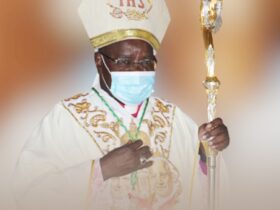
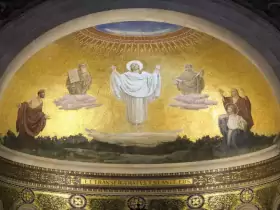
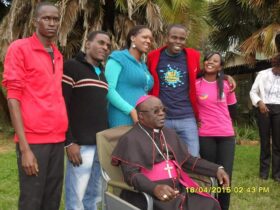
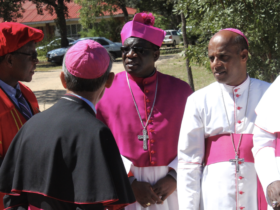
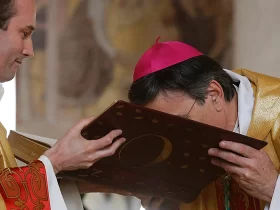

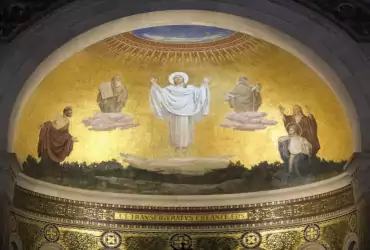
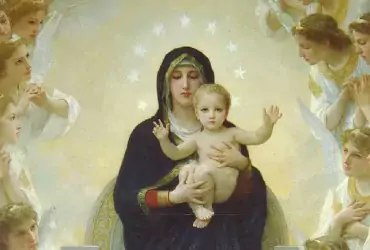
Leave a Reply